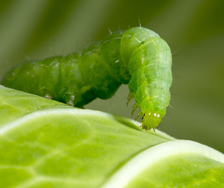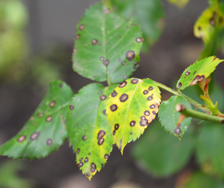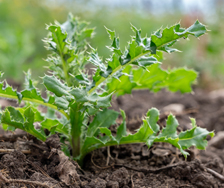Yates Account
Join now
Create a Yates account today!
Sign up to join the Yates Garden Club for monthly e-mails packed with seasonal inspiration, tips for success & exclusive promotions.
Plus if you’re a Garden Club member you can take part in the Yates Growing Community - a blog to share successes, get advice & win prizes in fun challenges along the way!

Forgot password
Enter the email address associated with your account, and we'll email you a new password.

End of Year To-Dos for Citrus
Small fruit developing on many varieties of citrus trees during summer heralds what we’ll be enjoying during the cooler months.
We can help nurture those promising fruitlets by taking a few simple citrus care steps over summer:
Sooty Mould
If you’ve noticed a black ashy-looking film over citrus leaves or stems, it'll be Sooty Mould. This black mould, along with ants crawling up and down the tree, are classic indicators of the presence of sucking insect pests. Scale are sap sucking insects that can be covered in a waxy white, brown or pink coating and appear as small raised bumps on foliage or stems.
Scale insects deplete plants of important sugars and nutrients and excrete them as honeydew, a sweet sticky substance that ants eat, and sooty mould will happily grow on. If the underlying problem of scale is tackled, the sooty mould and ants will gradually disappear.
Control the scale insects by spraying leaves and stems with Yates Natures Way Organic Citrus, Vegie Ornamental Spray Ready to Use. It’s based on natural pyrethrin and vegetable oil and is certified for use in organic gardening. Yates Nature’s Way Citrus & Ornamental Gun will also control aphids, which also excrete honeydew, that attracts sooty mould.
Watering and Feeding
Deep, thorough watering of citrus trees, particularly potted citrus, will help reduce water stress. Water stress often leads to citrus dropping their developing fruit.
It’s also a good opportunity to apply or top up mulch around the root zone, which will help protect the shallow root system. Regular feeding of hungry citrus trees will encourage a much better harvest, so it’s important to make fertilising a priority for your citrus. Fortunately, it’s as simple as diluting 2 capfuls of Yates Thrive Citrus Liquid Plant Food into a 9L watering can, then applying over the root zone once a week.
If you’re lucky enough to have a potted Tahitian Lime tree, the tangy fruit will be ready from January. Limes can be harvested while still green, when they’re around 6cm in diameter. Perfect for summer drinks and cocktails; not forgetting zesty marinades, cakes and desserts.















Share
Share this article on social media